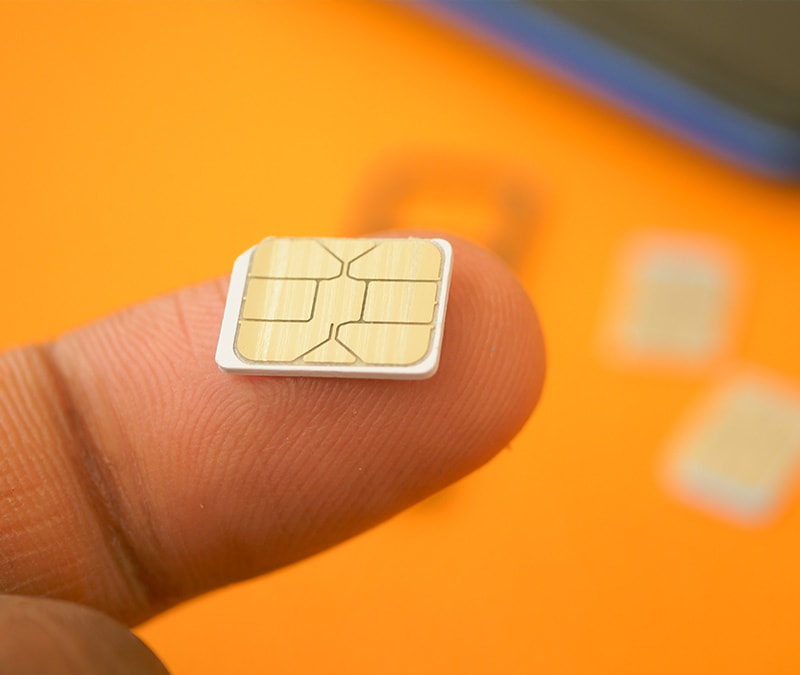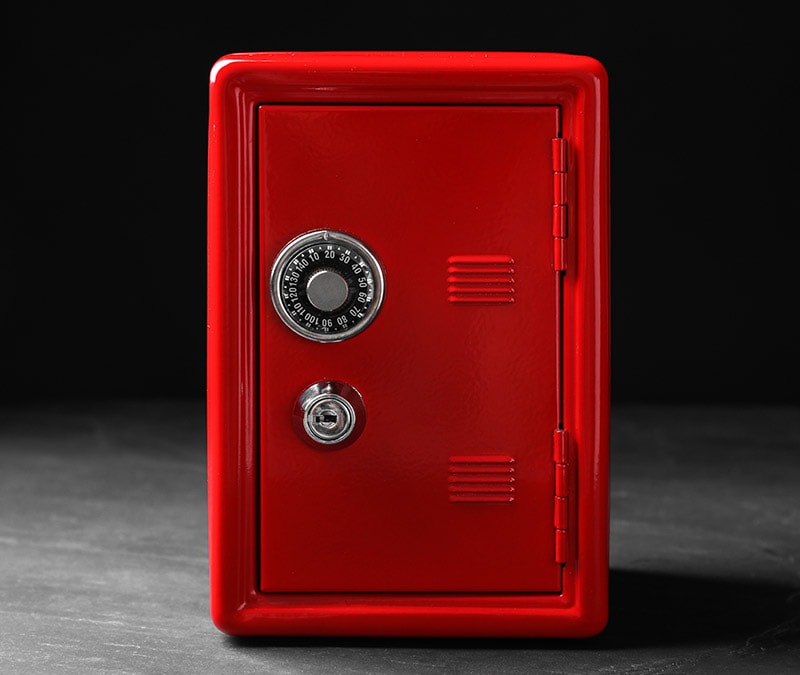9 warning signs of identity theft and what to look for
Identity theft is one of the fastest-growing crimes and affects millions of americans every year. Identity thieves can use your social security number, bank account credentials, credit card numbers, or date of birth to steal your personal information. If you are a victim, you’ll need to act quickly to clear your name.

There’s a big demand on the dark web for personal information that can be used to commit identity theft and other cybercrimes. Criminal outfits specializing in identity theft will go to great lengths to get their hands on your personal information, such as your Social Security number, bank account credentials, credit card numbers, or date of birth.
Identity theft is one of the fastest-growing crimes and affects millions of Americans every year. Protecting your personal information to avoid becoming another victim of identity theft requires education and awareness. The problem with ID theft is that it often doesn’t become apparent until it’s too late. That’s why it’s important to keep an eye out for ID theft red flags.
Below you’ll find some common signs of identity theft and what to look for.
9 warning signs of identity theft
Here are several clues that could alert you to your identity being stolen.
1. Your bank statement doesn’t look right or your checks bounce.
Even a small discrepancy on your bank account summary could be a red flag or sign that you’re a victim of financial identity theft. Check your accounts regularly online and contact your bank immediately if you notice any unfamiliar withdrawals or suspicious charges.
If someone has unauthorized access to your bank account, it’s a good idea to close that account and open a new one with a new account number.
Remember to update any automatic payments with your new account information. You’ll also want to work with the bank to resolve the fraudulent transactions.
2. You see unfamiliar and unauthorized activity on your credit card or credit report.
Another sign that you may be a victim of financial ID theft is suspicious activity on your credit card statement. Criminals sometimes make small charges to test an account to see if a fraudulent charge will go through.
If someone has stolen your credit card number and made fraudulent purchases, contact the merchant and card issuer to alert them to the fraudulent charges. Ask the card issuer to close the account and issue you a new card, and update automatic payments to your new card.
If someone has your Social Security number and other personally identifiable information — also known as PII — they could also open new cards in your name.
In either case, you’ll need to contact one of the three major credit bureaus to place a fraud alert or a credit freeze on your credit report, which should make it more difficult for identity thieves to open accounts in your name.
Contact one of these three bureaus immediately:
- Equifax: 800-525-6285 or Equifax.com
- Experian: 888-397-3742 or Experian.com
- TransUnion: 800-680-7289 or TransUnion.com
The credit reporting agency you contact are required to alert the other two agencies. Remember to keep an eye on your credit score and credit reports, looking for signs of any unauthorized activity.
3. Your bills are missing or you receive unfamiliar bills.
Sometimes identity thieves will steal their victim’s mail by changing their mailing address. If your bills are missing, this may be a warning sign of identity theft. Criminals can then gather information from your mail and piece it together to open new accounts in your name.
In addition to obtaining credit cards in your name, identity thieves may fraudulently use your personal information to purchase goods in your name, upgrade services on existing accounts for their own use, or open new wireless accounts.
You may not find out about it until an unpaid account appears on your credit report or you hear from a bill collector. This is a big warning sign of ID theft. It’s important to keep track of all bills and bank correspondence in case you need to remediate these fraudulent charges.
4. Your cellphone or another utility loses service.
Losing your cellphone service can represent another warning sign of identity theft. If you do lose service, you should promptly review your account for unfamiliar activity.
For instance, if an identity thief upgrades a phone on your existing account, your current device could lose service because your service has been transferred to the new device. On top of that, you could still be responsible for paying for the new device.
In this case, you’ll want to reach out directly to your wireless provider.
5. You receive calls from debt collectors.
It’s possible someone to use your name and personal information to rack up debts. Another warning sign of identity theft is if you begin to receive calls from creditors asking about unpaid bills you don’t recognize.
Check your credit report for unfamiliar accounts or charges to catch this warning sign of identity theft.
If you are a victim, you’ll need to contact the three major credit reporting agencies — Equifax, Experian, and TransUnion — to dispute the fraudulent activity. You’ll also need to contact the merchant or service provider where the fraudulent account was opened — and close that account immediately.
6. Your medical bill doesn’t add up, or your medical claim is denied.
If you get a medical bill for a service you didn’t receive or your medical claim is rejected because you have already reached your benefits limit, unbeknown to you, it’s likely something isn’t right.
An ID thief could give your information in a medical emergency or at a doctor’s office, which could negatively affect your medical benefits eligibility or result in someone else’s medical history ending up in your health records. Such discrepancies could be harmful to your health and future treatment.
How? The healthcare provider will have incorrect information about you and could prescribe the wrong treatment.
Keep an eye on any medical bills or statements of benefits you receive to help detect this warning sign of identity theft. If you suspect you’re a victim, call your healthcare provider and health insurance company right away.
7. You’re unable to file taxes because someone has already filed a tax return in your name.
If criminals use your personal information in communications with the government, you’re a victim of government identity theft.
One example is tax-related ID theft, or tax refund fraud. Identity thieves may file taxes using your SSN and date of birth to cash in on your tax refund, channeling it into their own account. This would prevent you from filing your own taxes.
This crime is also known as Stolen Identity Refund Fraud. SIRF enforcement has become one of the highest prosecution priorities for the Tax Division of the Social Security Administration. In this case, contact the Internal Revenue Service immediately.
You’ll also need to alert the Federal Trade Commission and your local police department. A police report may be helpful or necessary to resolve the issue.
A quick and practical tip? Always try to file your taxes early — before scammers have the chance to beat you to it.
8. There’s a warrant out for your arrest.
Someone who has your Social Security number could use your name and personal information if they are taken in by law enforcement for criminal activity. If someone gives your identity when arrested, this could lead to an arrest warrant for you.
This crime is known as criminal identity theft. If you are a victim, you’ll need to act quickly to clear your name.
You may have to contact both your local law enforcement agency and the law enforcement agency in the jurisdiction that wants to arrest you. You may be required to prove to the arresting agency through fingerprints or other means that you are you — and not the criminal.
9. You’re notified that your information was exposed in a data breach.
If you’ve been notified that your data has been compromised due to a data breach at one of your merchants, you’ll need to act quickly to help protect your information against it being used to commit fraud.
What do identity thieves do with your information?
Whether identity thieves acquire your personal information through a data breach or more individualized tactics, once they have your personal information, your identity, finances, and reputation could be at risk.
Identity thieves could commit fraud by doing everything mentioned above, including running up charges on your credit cards, opening new credit card accounts, and getting medical treatments using your identity. Sometimes a thief could file a tax return in your name and prevent you from filing your taxes and collecting your refund. In extreme cases, a criminal can give your name to the police during an arrest.
While stolen credit cards can be cancelled and replaced, it’s difficult to receive a new Social Security number from the Social Security Administration. So a first line of defense against identity thieves is keeping your SSN safe and secure.
If your SSN and other personal information falls into the hands of ID thieves, you’ll have to resolve the issue, contacting law enforcement, the Internal Revenue Service (IRS), and other government entities to prove to them that the criminal who has stolen your identity is not the real you.
Sometimes, people with a compromised identity do not immediately detect the signs of identity theft. It’s possible for months or years to pass without knowing that someone is harming your credit or financial reputation. That’s one reason why it’s smart to consider a digital safety solution that helps protect your devices, online connections, and identity.
Cleaning up the mess an identity thief leaves behind can be difficult, so spotting these nine warning signs early by monitoring your accounts, bills, and credit reports can help protect your identity and finances.

Try Norton 360 FREE 7-Day Trial* - Includes Norton VPN
7 days of FREE* comprehensive antivirus, device security and online privacy with Norton VPN.
Join today. Cancel anytime.
*Terms Apply
Editorial note: Our articles provide educational information for you. Our offerings may not cover or protect against every type of crime, fraud, or threat we write about. Our goal is to increase awareness about Cyber Safety. Please review complete Terms during enrollment or setup. Remember that no one can prevent all identity theft or cybercrime, and that LifeLock does not monitor all transactions at all businesses. The Norton and LifeLock brands are part of Gen Digital Inc.





Want more?
Follow us for all the latest news, tips, and updates.